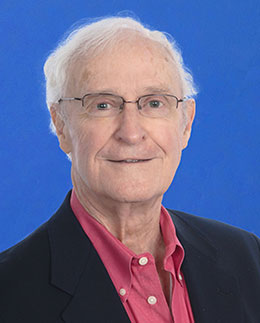 From 1983 until 2011 — twenty-eight years — I worked with the late Richard Jackson as my editor. During that time he was at Bradbury (his company), Macmillan, Orchard, and then Atheneum. If I count correctly, I believe we created some twenty-five books together. They ranged from picture books to novels and included The True Confessions of Charlotte Doyle, Nothing but the Truth, and Poppy, which suggests the range of the books on which we worked. Indeed, he edited many, many different kinds of writers such as Judy Bloom, Paula Fox, and Brian Floca.
From 1983 until 2011 — twenty-eight years — I worked with the late Richard Jackson as my editor. During that time he was at Bradbury (his company), Macmillan, Orchard, and then Atheneum. If I count correctly, I believe we created some twenty-five books together. They ranged from picture books to novels and included The True Confessions of Charlotte Doyle, Nothing but the Truth, and Poppy, which suggests the range of the books on which we worked. Indeed, he edited many, many different kinds of writers such as Judy Bloom, Paula Fox, and Brian Floca.
He had the skill (among many skills) of being able to work with a wide variety of artists and writers, having the ability to relate to them and their work according to their different talents, methods, and (not least) personalities. In fact, during the few times when I was with him when he was with a number of his people, he was uncomfortable, as if not sure how to act with such a varied group. He was at his best one on one.
When we spoke it was mostly by phone (no e‑mails then) and these sessions were extremely creative, working out problems and ideas, the talk punctuated by much laughter. I came to think of him as my good friend. Not to say that he thought of me that way (I won’t presume) but he was always so focused on what we were working on that he made me feel that way. I had great trust in his judgments.
Indeed, one of the things that amazed me about the way he worked was that even though he worked on many projects at the same time, if I called and raised a question about a point in such and such a book, he was instantly and fully connected to our project. It was not bravado. He always could connect — spot on — to the book.
Another aspect of our work together — and let it be understood I assume he worked differently with everyone — is that when we had come to the end of a project, which is to say when we both agreed a book was done, a few weeks would go by, and then I’d receive a call from him. “I’ve been thinking,” he would begin such conversations. Then he would tell me that he had realized that one aspect of the book needed clarification, revising, rewriting, etc. It might be big or small. In other words, though we had both agreed the book had been done, he had kept thinking about it.
That was because he was more than the textual editor of the book. He engaged himself in all aspects of the book’s evolution, from talking about the idea for the book, and the editing of the text, to the physical production, and its marketing. One might think every editor works that way. Alas, no.
More than anything, what I experienced with him was the key component of professional writing: the need to be simultaneously objective and subjective about one’s work. That is, the writer must be critical of his/her work, without neglecting the subjective emotional, and even intuitive engagement with the work. The writer must be simultaneously an emotional writer and an objective reader. It is that bifurcated way of writing which is essential to craft a good piece of writing.
And that — as I knew him — was Richard Jackson’s great talent.
1 thought on “Simultaneously Objective and Subjective”
He was amazing! Thank you for introducing me to him.
Emily